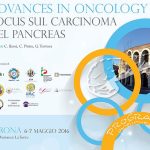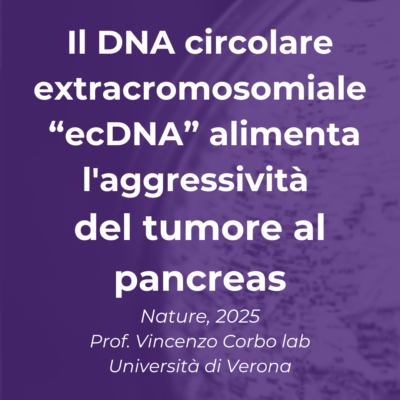
Advances in Oncology, focus sul carcinoma del Pancreas
Febbraio 29, 2016
PurpleStride NYC 2016
Marzo 10, 2016
Irene Esposito, MD
Professor of Anatomic Pathology, University of Duesseldorf, Germany
Dr. Irene Esposito graduated in Medicine and specialized in Pathology at the University of Pisa. Afterwards she moved to the University of Heidelberg in Germany (one of the major European centers on pancreatic pathology directed by Helmut Friess), where she was responsible for the pancreatic diagnostic lab. She later worked at the “Helmholtz Zentrum München” in Munich where she was in charge of the unit of animal pathology. Irene then held the role of vice director of the Technical University of Munich in charge of the “Centre for Advice on endocrine tumors and diseases of the pancreas”.
From 2009 to 2014 she worked together with one of the most renowned experts of pancreatic diseases, Professor Günter Klöppel.
Currently Dr. Esposito is Professor of Pathology and Director of the Center of Pathology of the University of Dusseldorf in Germany.
During the experimental thesis, Dr. Esposito studied the role of p53 and Bcl-2 genes (involved in tumor development) in the ductal carcinoma of the pancreas.
Currently the research of Dr. Esposito investigates three different aspects of pancreatic cancer. The first is to study the early lesions-precursors of ductal carcinoma of the pancreas. “Using genetically modified animal models”,Irene said, “we try to identify the cell of origin, but also the molecular mechanisms at the origin of pancreatic cancer in order to identify specific markers in the early stages of tumor development”.
The second part of her work concerns the genetic characterization of pancreatic cancer. “The scientific literature and data from our laboratory”, Irene said, “generated using the techniques of deep sequencing, indicate that there are subtypes of pancreatic cancer that may eventually be treated with specific therapies”.
Another area of research is investigating the interactions between the stroma (connective tissue that supports the pancreas) and epithelial cells in the progression of pancreatic cancer. “Pancreatic cancer is characterized by an intense stromal reaction that can support the development of the tumor through a molecular interaction between stromal cells and tumor cells.
Using animal models and complex in vitro techniques we try to identify the function of specific proteins of the stroma at different stages of tumor progression, from early lesions to the metastasis. ”
We asked Dr. Esposito to comment on the last progression on pancreatic cancer research. “We are observing a gradual improvement in the prognosis of individual patients,” Dr. Esposito said, “due to important recent progression on the genetic and molecular basis of the development of this terrible disease”.For more information about Dr. Esposito research clickhere





